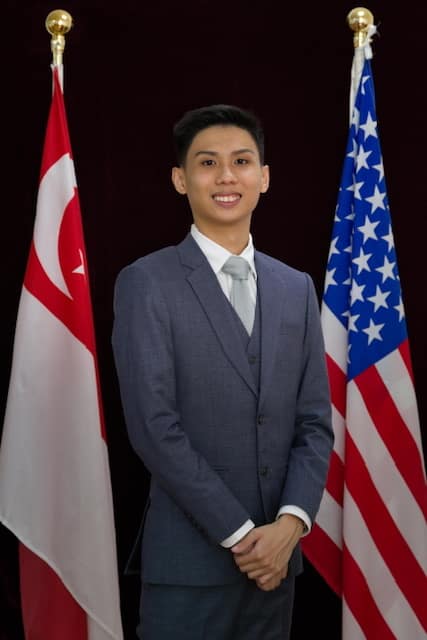Asia Campus student enjoys out-of-this-world opportunity

Mayer Sng (’22) is finishing his journey at Embry-Riddle Aeronautical University’s Asia Campus with a flourish by embracing a big challenge and an even bigger opportunity.
Sng, an Aeronautics major, was chosen to be part of the Embry-Riddle team taking part in NASA’s 2022 Revolutionary Aerospace Systems Concepts – Academic Linkage (RASC-AL) contest, which gives students from around the globe the chance to design solutions to pressing problems in deep space exploration.
In addition to Sng, this year’s Embry-Riddle team of 30 students includes members from each Embry-Riddle campus, along with several participants from the Polytechnic Institute of Milan in Italy.
“It is a great honor to represent ERAU Asia in this RASC-AL competition,” Sng said. “Participants in this project study in-depth the systems or theme that they are competing in, analyzing the technical aspects of different areas like material science and technologies, with the hope of revolutionizing future human space explorations.”
The 2022 contest themes address how humans will live and work on the Moon, Mars, and beyond. Each team must create proposals that address specific issues, and this year’s themes include creating a Portable Utility Pallet, designing a Universal Sample Containment System or a SuitPort Logistics Carrier and producing a sustainable source of water on Mars.
This also marks the 20th anniversary of RASC-AL event, and in honor of that milestone teams are for the first time being encouraged to build prototypes of their solutions to accompany the concepts presented to NASA and industry judges during a competitive design review at the 2022 RASC-AL Forum, scheduled for June in Cocoa Beach, Fla.
The Embry-Riddle team will focus the Mars Water-based In-Situ Resource Utilization (ISRU) theme.
“This is a system to aid in gathering water for usage on Mars over the long term,” said Sng. “I am part of the sub-team researching structures and mechanisms, looking into composite technologies as well as smart technologies and materials.”
The challenges are huge, but so are the payoffs, Sng said.
“This is a rare opportunity that will be an extremely great experience for me,” he said. “It’s a chance for me to practice what I have learned in real life and a chance to learn more about space systems.”
Sng is also learning the value of collaboration and teamwork when it comes to surmounting technical and engineering obstacles, such as those presented by the RASC-AL competition. Teams not only help each other solve problems, they also help form the foundation of a lasting professional network that will pay dividends in the future.
“I am looking forward to building more International friendships and connections,” he said. “I want to deepen my skills in teamwork and international relations.”
Sng says he is getting plenty of support from his Embry-Riddle Asia Campus professors and also from fellow student Kerr Salvador Gagan (’23), who was part of a 2021 RASC-AL team that planned a deep space mission.
“Kerr and I have been communicating with each other every other week,” Sng said. “He constantly provides me with words of encouragement.”
Like Gagan before him, Sng is hoping his part in the project will have an additional benefit: Setting a standard and leaving a legacy for other Asia Campus students to follow.
“I want to inspire others to know that we can do it even though we are a small campus in Singapore,” he said. “If someone like me can do it, I believe you can do it too!”
Sng also offered this advice: “Life your university life to the fullest and push yourself to work on different competitions and projects.”
